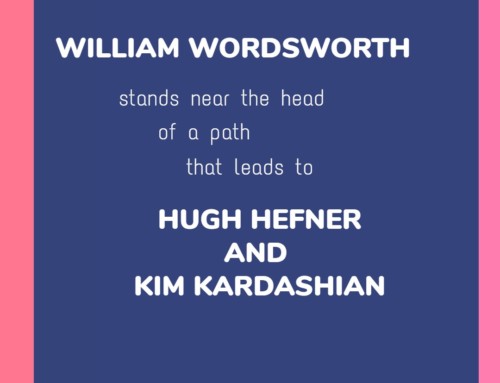So Sanders is your guy eh?
As you might guess, this upsets me. The youthful ignorance of history displayed by his passionate supporters is deeply unsettling to watch. Many news sources assure us all that most Americans don’t favor socialism. This doesn’t comfort me a bit. The rapid rate at which we’ve gone from “loony fringe socialist sympathizer” to “major political party about to nominate the unthinkable” hints that, even if this idea doesn’t toss the ball into the hoop this time, it sure is circling the rim.
Not only do I pick up on the righteous passion of the young socialists. I feel the undercurrent of something else: Amusement. Upsetting old people like me is part of the fun. We’re the grown-ups now. You’ll just have to live with it.
Um, no. I’ll be gone in two or three decades. And you are the one that will have to live with it.
What I owe you is my own historical memory, a passing-on of what I’ve seen, heard and understood.
I admit that I grew up hearing Socialism is bad. Communism is really bad at the dinner table, at school, on the news. Once I was an adult, I had to sift and weigh what I was told, to discard what didn’t hold up.
My verdict: I was fed the right idea, just not the intellectual foundations. But with time and curiosity, I found those on my own.
So here’s a sampling of who and what influences my thinking and deepens my resolve:
Against All Hope is the memoir of Cuban dissident Fernando Valladares. When he spoke out about human rights violations in Castro’s Cuba, he endured years of imprisonment and torture.
I listened to an audio of excerpt of To Destroy You is No Loss, a young girl’s account of the Khmer Rouge takeover in Cambodia. Hint: It’s a little bad news at first. Then it snowballs.
Then there’s The Gulag Archipelago. Actually, I haven’t read that one yet. It’s the bookworm equivalent of running a marathon. But it’s author, Aleksandr Solzhenitsyn, is credited as the man who finally showed what totalitarianism was. It was not the scientific, just and cool system it promised to be. After Solzhenitsyn, no one with any intellectual honesty could defend it.
And since I haven’t read it yet, we can represent Russia with this account from a woman who lived in the Soviet Union at the time that Bernie Sanders visited.
Recently, National Review published back-to-back issues, one defending capitalism, one decrying socialism. I’ve never heard myself say, Oh, that’s a keeper quote! so many times in the same reading session. Other readers must have felt the same way; the magazine combined both issues, now offering them in book form.
Here are a few quotes from the articles I found most compelling:
From “Free the Market, Free Your Mind” by Kevin D. Williamson.
Workers in the capitalist world sometimes feel powerless in comparison with their employers, but they have the power to exit that relationship and take a different job, as millions of workers do every year. But imagine if there were only one employer. . .
[In a socialist system, that employer is the state.]
“During the ‘purgations’ in the last month of 1935 and the first half of 1936, hundreds of thousands of members of the party were again expelled . . . The most active were immediately arrested and thrown into prisons and concentration camps. As to the rest, Stalin, . . . openly advised the local organs not to give them work. In a country where the sole employer is the state, this means death by slow starvation. The old principle: who does not work shall not eat, has been replaced with a new one: who does not obey shall not eat.”
From “Capitalism in America: an Immigrant Perspective” by Helen Raleigh:
If I have to pick one word to describe my childhood [in China], that word is “scarcity.” . . .
I still remember the experience of buying our family’s first refrigerator in the late ’80s. We had to stand in a long line until it was our turn. For the domestic brand we could afford, there was only one size and color available in the store. If we said no, 100 other people would be more than happy to take our fridge home.
From “The Market Tradition” by Yuval Levin:
Men and women cannot be compelled to act morally, so we require institutions that form our characters and dispositions to that we might choose to act morally. The market is one such institution. Through the division of labor, it enables essentially every person to approach the larger society on the basis of what he can offer rather than just what he needs, reinforcing his dignity. And by valuing reliability, honesty, civility, discipline and similar bourgeois virtues, markets give us the habits required to handle an enormous amount of freedom responsibly. . . .
If our politics and culture were merely extensions of the market system . . . then ours would indeed be an unjust society.
But our policies and culture are much more than that. The best case for capitalism is a case for markets as one crucial set of institutions in a free society. . . .
These other institutions — the family, religion, schools, civic associations, political bodies, and more — teach and habituate us in ways that encourage distinct virtues of their own. . . . [T]hey also often work to keep one another in check.
From “If You Want to Want . . .” by Jeffrey Tucker:
Among the most conspicuous of socialism’s failings is its capacity to generate vast shortages of things essential for life . . .
Consider the views of two London-based journalists . . . They looked at the absence of meat in Venezuela and praised the population for going vegetarian. . . . As for the energy shortage, . . . “During blackouts, people told stories, played music, or went out and talked on the streets. It was a paradise . . .”
Yes, they actually used the word “paradise” to describe Venezuela today. If certain leftists are unable to see why mass deprivation of food and energy is so bad, it seems hopeless that they will see cause and effect at work . . .”
From “The Ignorance That Kills” by Kevin D. Williamson:
[C]entral planners in Moscow imagined that they might develop a computer system so powerful that it could consider every variable in society at once and spit out scientific maxims about how many acres of potatoes to plant, and when and where to plant them.
“Preserved in Their Poverty” by Theodore Dalrymple:
[quoting Oscar Wilde:]
“Socialism annihilates family life . . . With the abolition of private property, marriage in its present form must disappear . . . It converts the abolition of legal restraint into a form of freedom that will help the full development of personality, and make the love of man and woman more wonderful, more beautiful, and more ennobling.”
As it happens, I have closely observed this more wonderful, more beautiful, and more ennobling love of man and woman . . . and it was not quite as lovely as Wilde . . imagined or depicted, to put it mildly.
Socialism and communism could hardly be accused of supporting religion. But plenty of sincerely religious people see socialism, at least, as Christianity made practical. I’ve seen them quote James 1:27 — “Pure religion and undefiled before God and the Father is this, To visit the fatherless and widows in their affliction.” I’ve also seen them leave off the rest of the verse — “and to keep himself unspotted from the world.”
I used to define “unspotted” as “Don’t do naughty things.” I see it a little differently these days. Keeping oneself unspotted sounds like “Don’t love falsehood.” False ideas lie at the root of naughty, destructive acts.
Why would anybody love a false idea? Because it makes a promise. Every idea makes promises. It’s just that the false ones don’t deliver and the true ones do.
No, I really don’t want to live with any form of totalitarianism. But neither would I wish its miseries, constrictions, tortures and betrayals on you.







Leave A Comment